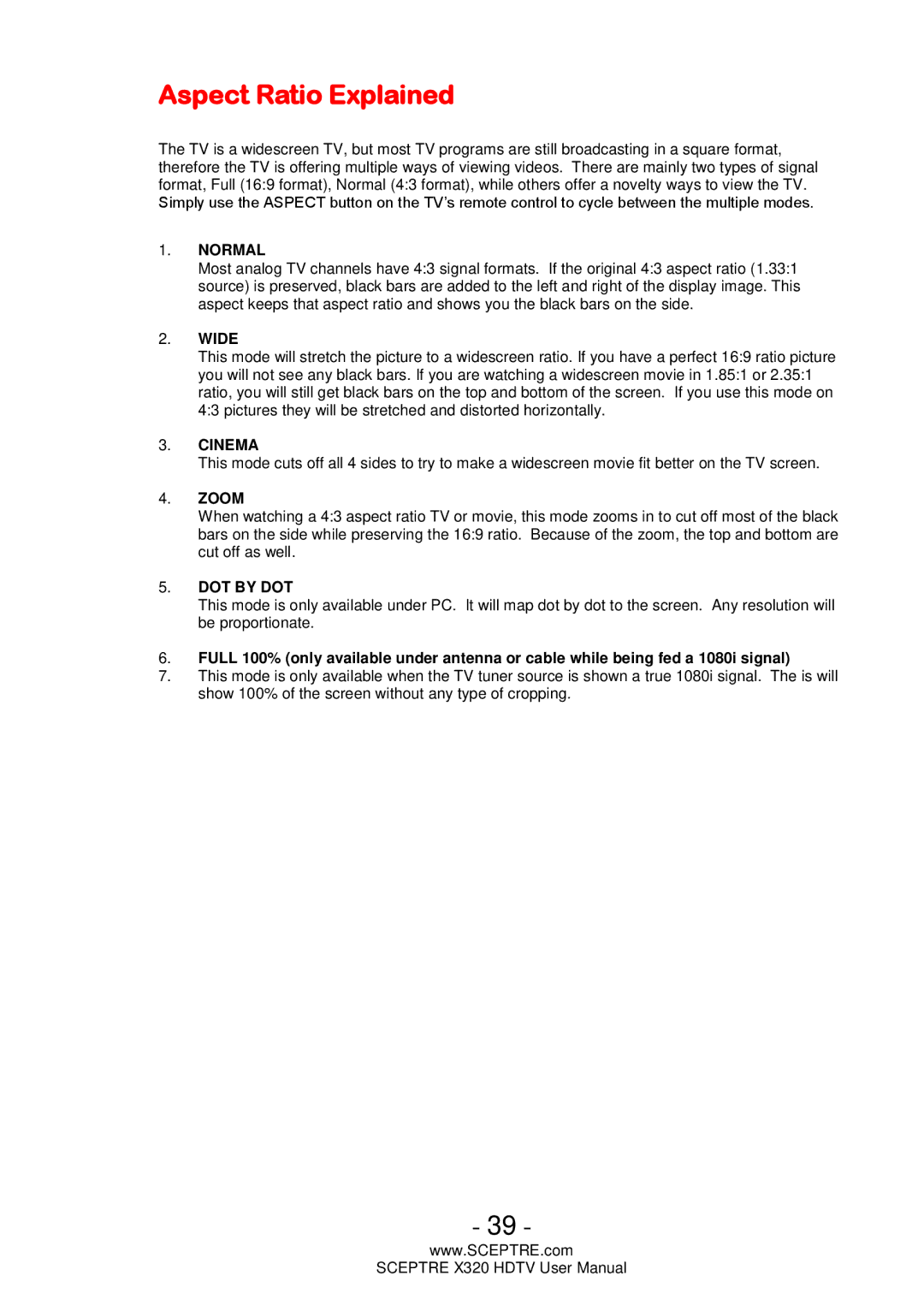Aspect Ratio Explained
The TV is a widescreen TV, but most TV programs are still broadcasting in a square format, therefore the TV is offering multiple ways of viewing videos. There are mainly two types of signal format, Full (16:9 format), Normal (4:3 format), while others offer a novelty ways to view the TV. Simply use the ASPECT button on the TV’s remote control to cycle between the multiple modes.
1.NORMAL
Most analog TV channels have 4:3 signal formats. If the original 4:3 aspect ratio (1.33:1 source) is preserved, black bars are added to the left and right of the display image. This aspect keeps that aspect ratio and shows you the black bars on the side.
2.WIDE
This mode will stretch the picture to a widescreen ratio. If you have a perfect 16:9 ratio picture you will not see any black bars. If you are watching a widescreen movie in 1.85:1 or 2.35:1 ratio, you will still get black bars on the top and bottom of the screen. If you use this mode on 4:3 pictures they will be stretched and distorted horizontally.
3.CINEMA
This mode cuts off all 4 sides to try to make a widescreen movie fit better on the TV screen.
4.ZOOM
When watching a 4:3 aspect ratio TV or movie, this mode zooms in to cut off most of the black bars on the side while preserving the 16:9 ratio. Because of the zoom, the top and bottom are cut off as well.
5.DOT BY DOT
This mode is only available under PC. It will map dot by dot to the screen. Any resolution will be proportionate.
6.FULL 100% (only available under antenna or cable while being fed a 1080i signal)
7.This mode is only available when the TV tuner source is shown a true 1080i signal. The is will show 100% of the screen without any type of cropping.
- 39 -
www.SCEPTRE.com
SCEPTRE X320 HDTV User Manual
